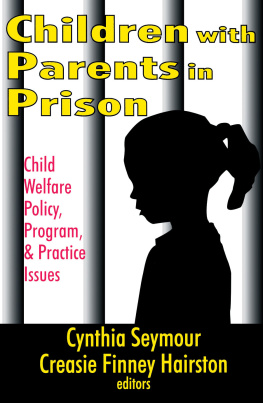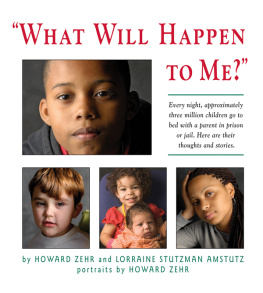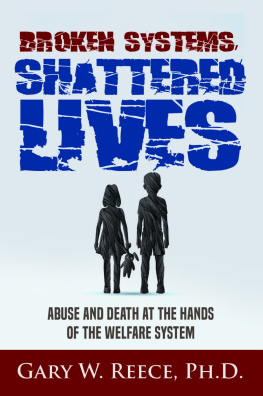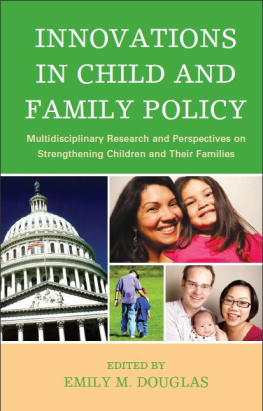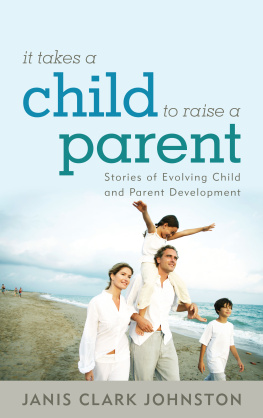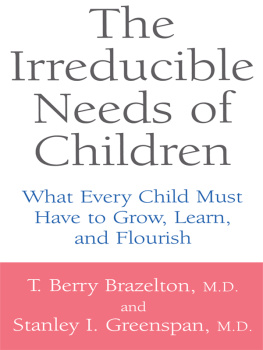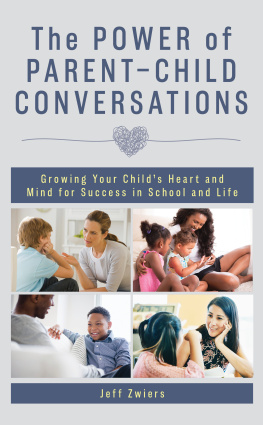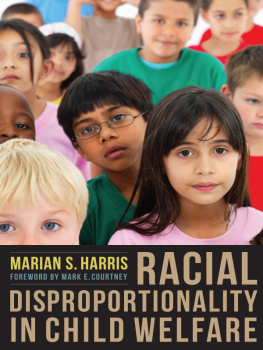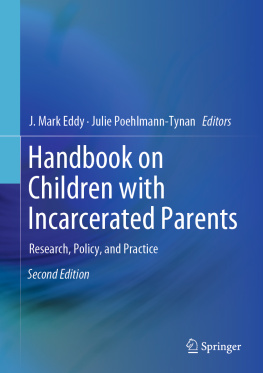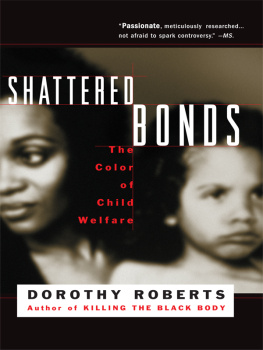Children with Parents in Prison
Children with Parents in Prison
Child Welfare Policy, Program, & Practice Issues
Cynthia Seymour
Creasie Finney Hairston
editors
Originally published as a special issue of Child Welfare: Journal of Policy,
Practice and Program, Vol. LXXVII, #5, September/October 1998, copyright
1998 by the Child Welfare League of America, Inc.
Copyright 2001 by the Child Welfare League of America, Inc.
Published 2001 by Transaction Publishers
Published 2017 by Routledge
2 Park Square, Milton Park, Abingdon, Oxon OX14 4RN
711 Third Avenue, New York, NY 10017, USA
Routledge is an imprint of the Taylor & Francis Group, an informa business
All rights reserved. No part of this book may be reprinted or reproduced or utilised in any form or by any electronic, mechanical, or other means, now known or hereafter invented, including photocopying and recording, or in any information storage or retrieval system, without permission in writing from the publishers.
Notice:
Product or corporate names may be trademarks or registered trademarks, and are used only for identification and explanation without intent to infringe.
Library of Congress Catalog Number: 00-023862
Children with parents in prison : child welfare policy, program, and practice issues / Cynthia Seymour and Creasie Finney Hairston, editors,
p. cm.
Includes bibliographical references.
ISBN 0-7658-0719-X (alk. paper)
1. Children of prisonersServices forUnited States. 2. Children of prisonersGovernment policyUnited States. 3. Prisoners families Government policyUnited States. 4. PrisonersUnited StatesFamily relationships. I. Seymour, Cynthia. II. Hairston, Creasie Finney.
HV8886.US C55 2000
362.7dc21 00-023862
CIP
ISBN 13: 978-0-7658-0719-9 (pbk)
Contents
David S. Liederman
INTRODUCTION
Cynthia B. Seymour
POLICY AND PRACTICE
Pamela Covington Katz
Adela Beckerman
Susan Phillips and Barbara Bloom
Philip M. Genty
PROGRAM MODELS
Kathleen J. Block and Margaret J. Potthast
Marsha Weissman and Candace Mayer LaRue
Toni Johnson, Katherine Selber, and Michael Lauderdale
CLOSING THOUGHTS
Creasie Finney Hairston
This special edition of Child Welfare grew out of the Child Welfare League of America Children with Incarcerated Parents initiative. The initiative arose in response to the need expressed by CWLAs member agencies, who had begun to see in their caseloads an increasing number of children with parents in prison. With encouragement from Peter Breen, executive director of Centerforce, a CWLA-member agency; with assistance from the Womens Prison Association and the Osborne Association; and with support from The Hite Foundation, CWLA hosted the National Institute on Children of Incarcerated Parents in Washington, D.C., on March 26,1996. The Institute drew more than 175 child welfare and criminal justice professionals from across the country. Cosponsors included the U.S. Department of Justices National Institute of Justice, the Council of Governors Policy Advisors, and Center force.
The enthusiastic response to the Institute convinced us that the field wanted and needed more information about children whose parents are incarcerated. In 1997, we began offering special workshop tracks on the subject at our national conferences. We also surveyed state child welfare agencies to find out how aware they are of parental incarceration and what programs and services they currently offer. The survey results demonstrated a dearth of responsive policies and services, but an eagerness for information and assistance. With additional support from The Hite Foundation, CWLA is currently developing a handbook for child welfare agencies to help them enhance their services to children and families separated by incarceration.
This special issue of Child Welfare on children with incarcerated parents is a natural outgrowth of our efforts in this arena. As our initiative developed and we became more familiar with parental incarceration, we noticed a lack of scholarly research and writing about the impact on children, particularly through the lens of child welfare. In addition, we wanted to raise the awareness of and provide up-to-date information to the child welfare community about the effect of parental incarceration on children. Finally, we wanted to alert the child welfare community to the good work being done by the advocates and service providers across the country who have recognized the needs of this unique population and have developed responsive programs and services. Although most of the programs for this population are too new to have been evaluated or reviewed, we felt it important to include some of them because they represent the first steps in responding to these children and their families, and will serve as models for those to come.
Children and families have long struggled with the difficulties created when a parent goes to prison. Until recently, though, parental incarceration has not been recognized as a discrete issue warranting study and concentrated intervention. It is our hope that this special issue of Child Welfare will raise public awareness about the impact of parental incarceration on children; stimulate discussion about how best to meet the special needs of these children and their families; and provide a resource for the child welfare community as it responds to the growing numbers of children made vulnerable by their parents incarceration.
Cynthia Seymour
As the rate at which adults are being incarcerated in the United States escalates, child welfare professionals are encountering growing numbers of children who have parents in prison. Current estimates indicate that as many as 1.5 million children have an incarcerated parent; many thousands of others have experienced the incarceration of a parent at some point in their lives. These vulnerable children face unique difficulties, and their growing numbers and special needs demand attention. Challenges facing the child welfare system as it attempts to work with this population are explored.
An estimated 200,000 children in this country have an imprisoned mother and more than 1.6 million have an imprisoned father. With the nations incarcerated population growing by an average of 6.5% each year [Gilliard & Beck 1998], the number of children with parents in prison will likely continue to increase. Parental incarcerationand the crimes and arrests that precede itcause chaos in the lives of these children, including traumatic separations and erratic shifts from one caregiver to another. Most children with incarcerated parents live in poverty before, during, and after their parents incarceration [Johnston 1995a].
The increasing incarceration rate for adult women is particularly foreboding because incarcerated women are often the sole caregivers of their children. Since 1985, the number of women in prison has almost tripled [U.S. Dept. of Justice 1997]. On any given day, more than 100,000 women are being held in this countrys jails and prisons [Gilliard & Beck 1998; U.S. Dept. of Justice 1997]. Six percent of women entering prison are pregnant [Beck et al. 1992].

